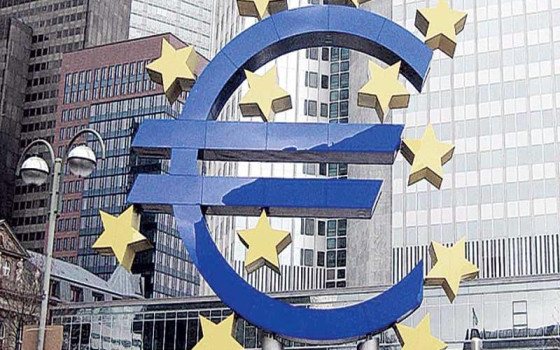
Brussels announces the failure of negotiations on the European Union budget for 2023..a last chance on Monday..it includes 184 billion commitments, an increase of more than 8%, and 166 billion in payments less than 3% compared to the current year.

- Europe and Arabs
- Saturday , 12 November 2022 13:28 PM GMT
Brussels: Europe and the Arabs
The federal institutions in Brussels announced that the negotiations on the European Union budget for 2023, which took place on Friday 11 November, ended without an agreement.
The participants in the negotiations from the Ministerial Council representing member states on the one hand and the European Parliament on the other hand concluded that more time is needed to overcome their differences and that they will reconvene the conciliation committee meeting on Monday, November 14 in the morning. The legal deadline for an agreement on the new EU budget is November 14 at midnight, which represents the last chance.
Jiri Georgiev, Deputy Finance Minister of the Czech Republic which holds the EU's rotating presidency and the Council's chief negotiator for the EU budget for 2023 said.
"In order to agree on next year's budget, the Council and the European Parliament will continue to work until the last minute: November 14 at midnight."
Last July, the Council approved its position on the negotiations after the ambassadors of the EU member states approved the draft EU budget for 2023. In total, the Council's position for next year's budget is €183.95 billion in commitments and €165.74 billion in payments. Compared to the budget approved by the Council and European Parliament for 2022, this represents a +8.29% increase in commitments and a -3.02% decrease in payments. At the time, Zibeink Stangora said
Zbyněk Stanjura, Minister of Finance of the Czech Republic “The Council has decided to take a careful approach to the annual budget preparation process. We will make sure that the EU’s financial resources focus on our current priorities. This means that we have revised many of the figures proposed by the Commission. I am pleased that we now have a solid basis for our negotiations with European Parliament.
In general, the Council takes a careful approach given the volatile context in which the EU operates. Keeping margins on the budget as a room for maneuver has proven very useful in the past. Member states stress the importance of ensuring that there is sufficient budget margin to address the uncertainties related to the Ukrainian crisis and inflation.
The annual budget of the European Union
The procedure for approving annual EU budgets involves three EU institutions: the European Commission, the Council of the European Union and the European Parliament.
The process begins in February of the previous year, when the Council and Parliament adopt their guiding principles.
The European Commission then submits a draft proposal to the Council and Parliament, usually in May.
Between July and September, the Council determines and adopts its position, and Parliament has one month to approve or amend it.
The annual EU budget is usually adopted by the end of the previous year. If no agreement can be reached, the new budget follows the rule of the "provisional twelfth part": no more than one tenth of the previous year's budget can be spent each month.












No Comments Found